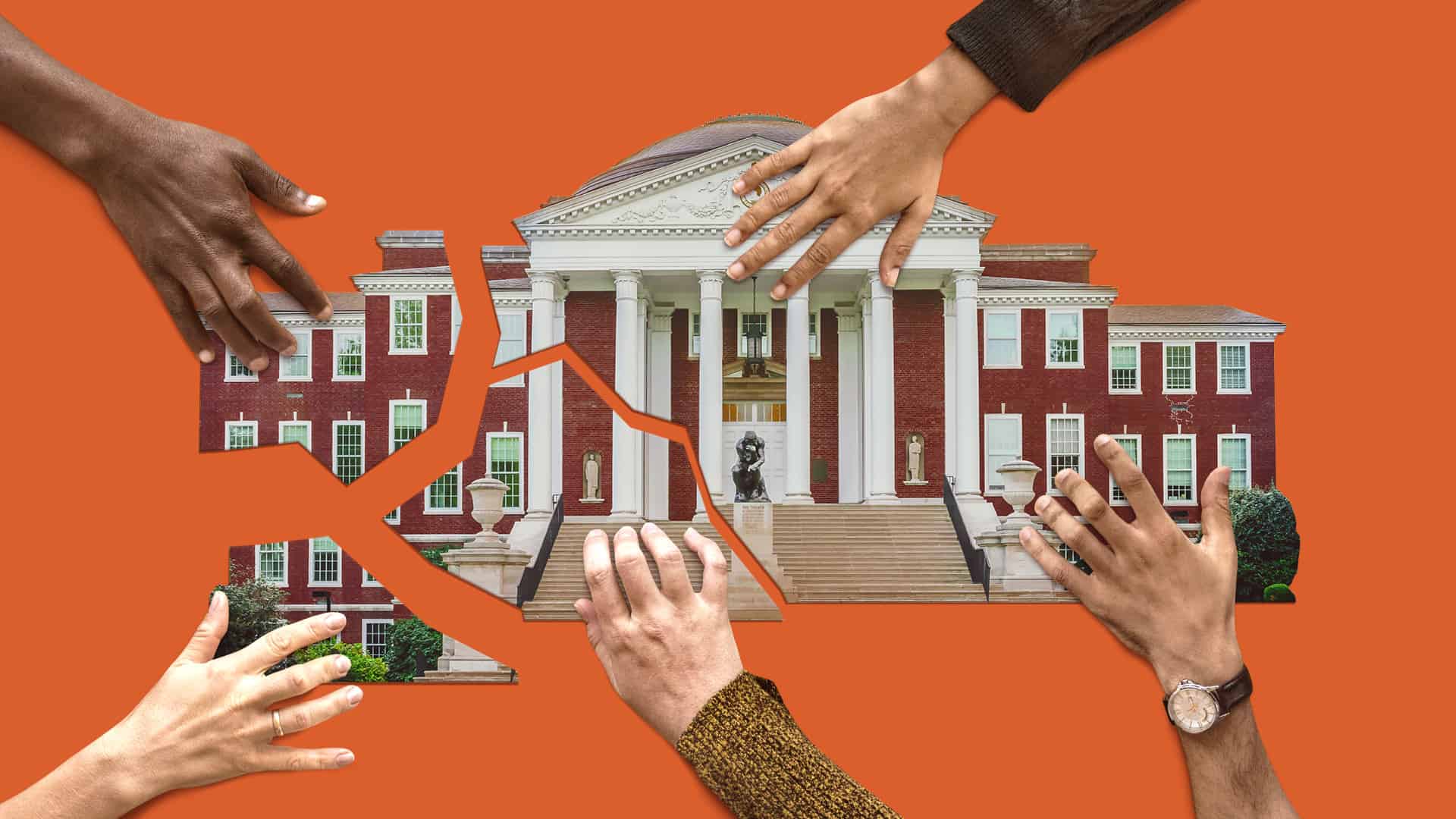
What if it’s time to change the conversation about the role of religion in academia?
Disruptive campus demonstrations centered on the Middle East conflict. Hateful graffiti. Diversity, Equity, and Inclusion programs under attack. University president firings and resignations. Candidates and legislators calling for the end of universities’ tax-exempt status.
News stories like these confirm that higher education in the United States is in challenging and rapidly changing times. Intolerance for diverse perspectives is on the rise on campuses as well as throughout the country, and there’s growing criticism that higher education is failing in its mission.
Often, the turmoil centers on a crisis of trust fueled by claims that most professors are pushing a leftist, secular agenda.
An unfortunate reality, however, is that little is actually known about the religious, spiritual, and secular affiliations of faculty in the United States — much less how these affect their work. Unlike documentation of race and gender diversity, there’s no national data-gathering system in place to record religious diversity among faculty. And very little research has focused on this topic.

The dearth of data leaves important questions unanswered: What is the role of professors’ personal beliefs in education? And how are their beliefs being revealed to today’s students?
With funding from Templeton Religion Trust, Matthew Mayhew, Ph.D., William Ray and Marie Adamson Flesher professor of educational administration at The Ohio State University, is leading a first-of-its-kind study. The intent is to gain empirical documentation and a fuller understanding of faculty’s religious, spiritual, and secular identities and how these affect their work. The project is called InFORM – short for “Including Faculty on Religious, Spiritual, and Secular Mattering.”
More than just a word, inclusion is a bedrock principle of this effort. To ensure scientific veracity, the team is recruiting a nationally representative sample of faculty who represent diverse religions, disciplines, institutional types, and geographies.
“We’re trying to understand how faculty think about their religious and spiritual selves in light of what they do for research, how they teach in the classroom, and the service opportunities that they engage in,” Mayhew explains. “This project will create the necessary data-gathering system and recruit a nationally representative group of faculty for participation.”
It’s easy for most of us to recall at least one professor who profoundly influenced us — while we were students and well beyond. More than just imparting book knowledge, they showed us how to approach unknowns and differences. Be open to new ideas. Stay resilient through challenges. They showed us how to relate and debate. They shared their opinions and beliefs. They made us more sure of who we were. They helped us grow.

Beyond personal experiences, there’s ample evidence from research that faculty exert more influence than anyone else on students’ learning, development, persistence, and degree attainment.
The quality of the college experience is determined by the faculty, Mayhew stresses. Moreover, a pluralism of beliefs among faculty is critical for true education to take place. Instead of rote adherence to keeping church and state separate or closemouthed caution, faculty should be more forthcoming about their personal beliefs.
“How they engage with students needs to be a key consideration as institutions look to develop a community that explores diverse perspectives, questions preconceived notions, and engages critically with complex issues.”
A first-of-its-kind study to fill important knowledge gaps, Mayhew’s project has two objectives:
All research participants will be surveyed. Then a representative subgroup will participate in one-on-one teleconferencing interviews. These will allow for elaboration on their beliefs and how these shape what they do.
Inputs from the surveys and interviews will be coded and analyzed using multiple best-practices research methods.
By communicating the findings broadly, Mayhew hopes this project can inform and fundamentally change the conversation about the role of religion in academia. Interfaith tolerance is just a start, he says. Appreciation for differences goes beyond that starting point to a genuine willingness to engage, respect, and learn.

“Empirical research into the diversity and impacts of faculty’s religious, spiritual, and secular affiliations is crucial for advancing religious literacy and interfaith capacities in higher education,” he says. “Data gained through research can be important information for the public, policymakers, educators, academics, and administrators. It can advance local and national conversations and help demystify the role of religion in higher education. It can help faculty embrace rather than fear bringing their religious, spiritual, and secular affiliations into their teaching. It can build synergies among faculty and administrators. It can build momentum for faculty diversity hiring and development strategies.
“We believe this research can fundamentally drive positive changes in policy, scholarship, and practices within and beyond higher education.”
Learn more: https://www.coil-impact.org/inform